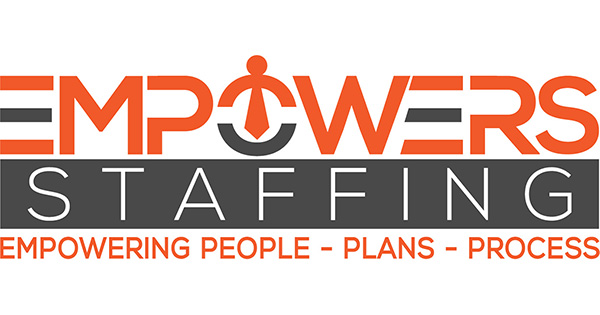A resume is a brief overview of your experience and qualifications. It is the first opportunity for a hiring manager to learn about you and your skills.
A winning resume is a resource that will get you an interview irrespective of what your qualifications are. Think of it this way — the goal of a resume is to get you across the door to talk about your skills and how they can help the company.
It’s essential to be mindful of the impression you make on hiring managers, as a first impression usually determines whether a person will move forward in the application process. Below are ten proven steps to help you create a winning resume.
1. Select a Resume Format
The first step in writing a resume is choosing the format. Most employers are familiar with the reverse chronological pattern. It makes the resume easy to scan and highlights your most relevant educational achievements, skills, and work experience.
However, the chronological format may not be ideal if you do not have experience or have many skills and experience. Therefore, you must choose a format that best suits your industry, level of experience, and position.
2. Create an Objective Statement
An objective statement is a short paragraph, often included at the top of a resume — not to be confused with the summary statement. However, the once-popular objective statement still has a purpose of its own. Nowadays, resume objectives not only declare the candidate’s motives — to obtain an entry-level accountant position, for instance — but also emphasize their skills with it.
3. List Your Accomplishments or Experiences
Listing professional achievements in a resume is quite essential.
If you add achievements and awards to your resume, you will show how well you did in your early jobs. It also showcases that you are way ahead of your competition.
Statements of achievement show that you have achieved results and developed the transferable skills and professional competencies necessary to be prepared for internships and career opportunities. Statements for achievement should include the following: action verb, project, positive outcome.
4. Include Keywords Throughout Your Resume
Keywords are an essential part of writing a good resume. Companies use an applicant tracking system (ATS) to review resumes and online applications. These systems search keywords (relevant to a job opportunity) in your resume or application to filter out non-qualified candidates.
Proper keyword use in your resume can change the entire game, mainly when employers use the applicant tracking system. The use of relevant keywords shows potential employers that you may be a good fit for the company. In addition, this shows that you are well versed in your field. For example, listing specific software skills is more powerful than saying you have good computer skills.
5. Think About What You Want
Start by thinking about what you want. This is important because very few people interrogate themselves and work on why they can’t grab a job.
Your aim should be to create a difference with your resume, and it should speak positively on your behalf and show the recruiter why they must hire you!
6. Create a Strong Headline
The resume headline is a short phrase that emphasizes your value as a candidate — located under your name and contact information. The headline allows the recruiter to identify a suitable person for them quickly.
It also allows you to express your skills and work experience in one short phrase that will quickly impress the hiring manager. However, less experienced candidates may use it to emphasize personal qualities and skills. With your headline, you can show a way to an employer why you are an excellent fit for the job.
7. Use the Right Formatting Style in Resume
The purpose of a resume is to tell the story of your experiences to every potential employer. Therefore, remember that your resume should represent you and also capture the attention of the employer.
A good resume can grab the attention of the recruiting staff or hiring manager and help you stand out from other candidates. Formatting your resume is a crucial step in creating a professional, readable resume.
There are many different ways to format your resume. One of the first decisions you have to make is what type of format you’ll choose: chronologically, functionally, or in combination. Each resume type is beneficial for people who have different experiences and goals. When you make specific formatting decisions, such as font size or margin style, your goal must be to provide a glance that allows employers to see why you are a good fit for the job.
8. Write an Outstanding Summary of Qualifications in Your Resume
The Summary of Qualifications is an introductory section of the resume. It is a brief emphasis on relevant experience, achievements, and skills. Its purpose is to show the qualifications related to the vacancy you are applying for. It usually presents pertinent qualifications in bullet points.
Most resumes get the six-second “skim” treatment and are never heard from again. So it’s really good news if you write yours differently. You may be the only Marvel character in a pile of couch potatoes.
9. Incorporate Skills into Your Resume
The skill section of your resume shows employers that you have the skills needed to succeed in the role. Notably, recruiters often pay special attention to the skills section to determine who should move to the next step in the hiring process.
If you don’t present your skills well in a resume, your resume will be ignored irrespective of how talented you are. The key to landing your dream job is preparing a resume with the required skills mentioned in it.
Notably, your resume must include keywords in the skills section and be conversational in tone without compromising major and minor skills.
10. Check Your Grammar And Punctuation
Your resume is a business card in the eyes of your employer. You can be engaging face-to-face, but you must first win the people who read your resume to win an interview. And they read lots of them, so you better be flawless.
Grammar and punctuation mistakes can ruin an otherwise excellent piece of writing. It becomes even crucial when you’re writing your resume. The punctuation and grammar mistakes reflect unprofessionalism and may drop your chances of getting shortlisted for an interview quickly.
So, these were the steps that can help you create a winning resume and even land you a job you desire. As you’re done with your resume, don’t forget to submit it to www. empowersstaffing.com It will make you a part of Empowers Staffing Inc talent pool. And as a result, whenever there is a suitable opportunity for you, you will get a notification. Submit now!


